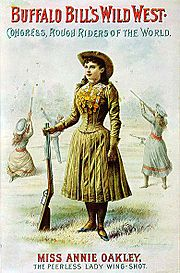To my Catholic readers, I do not in any way wish to cast aspersions on a day of celebration. There is a concern regarding the new Pope that I believe it needs to come forward. Should we have a discussion of the role the Catholic Church and its involvement in politics? None more than the so-called “Dirty war” in Argentina. The Associated Press provides details on Francis’ relationship to the regime, and one can easily read Francis’ record in two different ways: Read here. Please leave respectable comments.
Here are some comments to the article:
Comments:
What was the Church’s alternatives ? It was either support a right-wing dictatorship or face a left-wing firing squad. You think they didn’t remember what the communists did in Spain ?
Response:
If by that you mean “What else could the hierarchy have done?”, I would say that they could have taken their collective cue from the likes of Óscar Romero and shown a little moral fibre by opposing the torture, murder and oppression of their own people.
Will Francis’s role during Argentina’s ‘Dirty War’ come back to haunt him?
From 1973 to 1979, a period that overlapped with military dictatorship lasting from 1976 to 1983, Francis served as the top Argentine Jesuit official. During that time, the Catholic Church remained silent in the face of widespread human rights violations during the country’s so-called “Dirty War,” an effort by the military government to root out dissent by torture, murder, and disappearances.
Bergoglio has been criticized by the Society of Jesus (Jesuits) for his behavior during the 1976-1983 dictatorship in Argentina, with some journalists claiming that he prevented human rights groups from finding political prisoners by imprisoning them in his vacation home.
From post at Guardian UK Hugh O’Shaughnessy
- Tuesday 4 January 2011
The sins of the Argentinian church
The Catholic church was complicit in dreadful crimes in Argentina. Now it has a chance to repent
Francis still arrives with something of a troubled history. As the head of the Jesuit Order during the country’s military dictatorship, he may be tainted by the church’s well-documented history of turning a blind eye to the regime’s practice of killing progressive priests.
To his credit, Bergoglio has in recent years spearheaded the Argentine Catholic Church’s effort to apologize for its collaboration with the military regime, and last October Argentine bishops apologized for their failure to speak out against human rights abuses.
But with his ascendance to the papacy, greater scrutiny than ever will be directed toward his record during the time of Argentina’s military regime. The information that emerges may come to define Francis’ papacy.
From 1973 to 1979, a period that overlapped with military dictatorship lasting from 1976 to 1983, Francis served as the top Argentine Jesuit official. During that time, the Catholic Church remained silent in the face of widespread human rights violations during the country’s so-called “Dirty War,” an effort by the military government to root out dissent by torture, murder, and disappearances. In several cases, Catholic priests collaborated with the government and were even in the room as prisoners were tortured. In February, an Argentine court ruled that the Catholic church hierarchy, of which Francis was arguably a member, had “closed its eyes” to the killing of progressive priests. In 2005, human rights lawyers filed a case against then-Cardinal Bergoglio alleging that he had been complicit in the kidnapping of two Jesuit priests.
The extent of the church’s complicity in the dark deeds was excellently set out by Horacio Verbitsky, one of Argentina’s most notable journalists, in his book El Silencio (Silence). He recounts how the Argentinian navy with the connivance of Cardinal Jorge Bergoglio, now the Jesuit archbishop of Buenos Aires, hid from a visiting delegation of the Inter-American Human Rights Commission the dictatorship’s political prisoners. Bergoglio was hiding them in nothing less than his holiday home in an island called El Silencio in the River Plate. The most shaming thing for the church is that in such circumstances Bergoglio’s name was allowed to go forward in the ballot to chose the successor of John Paul II. What scandal would not have ensued if the first pope ever to be elected from the continent of America had been revealed as an accessory to murder and false imprisonment.





December 9, 2016 at 7:23 am
[…] at times to supersede any resemblance of a religious leader. But that has been covered before. Pope Francis role during Argentina’s ‘Dirty War’ come back again? — bunkerville March 13, […]
LikeLike
March 25, 2016 at 7:27 am
[…] update: Pope Francis role during Argentina’s ‘Dirty War’ come back again? Are we going to ask the Pope about his […]
LikeLike
December 17, 2014 at 3:25 pm
[…] Pope Francis role during Argentina’s ‘Dirty War’ come back again? […]
LikeLike
March 13, 2013 at 8:20 pm
Bunkerville, you may want to read this article – http://pjmedia.com/richardfernandez/. It looks like the Church clergy was divided with people on both sides of the war.
LikeLike
March 13, 2013 at 8:31 pm
It is a messy business. A good link.
LikeLike